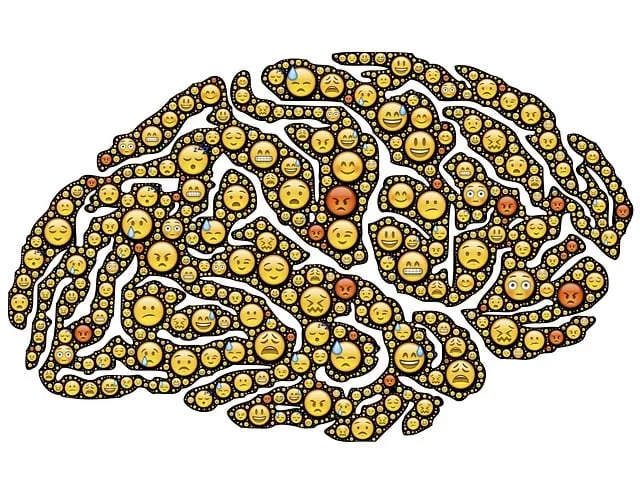The Kaiser Permanente Mental Health Appointment Center in Lone Tree offers Social Skills Training (SST), a holistic program integrating Trauma Support, Emotional Well-being techniques, and Inner Strength Development. Through role-playing and group discussions, SST equips individuals with mental health conditions to navigate social interactions, build confidence, and manage challenges, leading to better outcomes in various settings. This center's tailored services, including therapy and evidence-based coping strategies, focus on symptoms and causes for holistic healing. Effective SST programs should include Mind Over Matter principles, cultural sensitivity, risk management, and engaging scenarios, accessible to all. SST benefits individuals with anxiety, depression, or schizophrenia, fostering community well-being via improved social interaction and communication skills.
Social skills training is a powerful tool for individuals navigating mental health conditions, offering a supportive environment to develop and enhance interpersonal interactions. This article explores how structured programs, like those provided by centers such as Kaiser Permanente Mental Health Appointment Center Lone Tree, can significantly improve social functioning. We’ll delve into the key components making these trains effective, their wide-ranging benefits, and real-life applications, highlighting why they’re essential in holistic mental health care.
- Understanding Social Skills Training for Mental Health Conditions
- The Role of Kaiser Permanente Mental Health Appointment Center Lone Tree
- Key Components of Effective Social Skills Training Programs
- Benefits and Real-World Applications of Social Skills Training
Understanding Social Skills Training for Mental Health Conditions

Social Skills Training (SST) is a specialized therapeutic approach designed to enhance social functioning and improve quality of life for individuals with mental health conditions. At the Kaiser Permanente Mental Health Appointment Center in Lone Tree, SST goes beyond traditional talk therapy by focusing on practical skills essential for navigating social interactions. This tailored training helps clients build confidence, foster meaningful connections, and manage challenges associated with their specific mental health needs.
By incorporating Trauma Support Services, Emotional Well-being Promotion Techniques, and Inner Strength Development, SST creates a safe space where participants learn to recognize and regulate emotions, communicate effectively, and resolve conflicts. Through role-playing scenarios and group discussions, clients gain insights into their behaviors and develop strategies to improve social relationships. This holistic approach not only addresses symptoms but also empowers individuals to thrive in various social settings, ultimately contributing to improved overall mental health outcomes.
The Role of Kaiser Permanente Mental Health Appointment Center Lone Tree

The Kaiser Permanente Mental Health Appointment Center in Lone Tree plays a pivotal role in providing specialized care and support to individuals navigating mental health challenges. This center is dedicated to offering comprehensive services tailored to meet the unique needs of its diverse patient population. With a team of experienced professionals, it delivers evidence-based treatments, including therapy sessions, counseling, and burnout prevention strategies for healthcare providers. The center’s focus on anxiety relief and confidence boosting initiatives has significantly contributed to empowering patients to manage their conditions effectively.
Through various programs, the Lone Tree appointment center creates a nurturing environment, fostering open communication and connection among patients, thereby enhancing overall well-being. Their approach integrates modern therapeutic techniques with a holistic understanding of mental health, ensuring personalized care that addresses not just symptoms but also underlying causes. This comprehensive strategy sets the Kaiser Permanente Mental Health Appointment Center apart as a leading provider in its field.
Key Components of Effective Social Skills Training Programs

Social Skills Training Programs for mental health conditions should incorporate several key components to be effective. Firstly, Mind Over Matter Principles serve as a foundational framework, teaching individuals coping strategies and emotional regulation techniques that empower them to manage their mental health proactively. These programs need to be interactive and engaging, fostering open discussions and role-playing scenarios that mimic real-life social interactions. This allows participants to practice new skills in a safe environment.
Additionally, Risk Management Planning for Mental Health Professionals is vital to ensure the safety of both clients and practitioners. Training should include strategies for identifying and mitigating potential risks, especially in diverse populations. Incorporating Cultural Sensitivity in Mental Healthcare Practice is essential, as it promotes inclusive environments that respect individual backgrounds and beliefs. By addressing these components, social skills training becomes comprehensive, effective, and accessible to all, such as those seeking mental health services at the Kaiser Permanente Mental Health Appointment Center in Lone Tree.
Benefits and Real-World Applications of Social Skills Training

Social Skills Training (SST) offers a multitude of benefits for individuals navigating mental health conditions, especially when tailored to meet the unique needs of each person. One of its primary advantages is enhancing social interaction and communication, which can be particularly challenging for those dealing with anxiety disorders, depression, or schizophrenia. By practicing SST, individuals learn to interpret social cues, initiate conversations, and maintain relationships—skills that are crucial in managing their conditions effectively.
The real-world applications of SST at Kaiser Permanente mental health appointment centers in Lone Tree, Colorado, exemplify its impact. Through structured programs, clients engage in role-playing scenarios, group discussions, and mindfulness exercises designed to foster Mind Over Matter Principles. This holistic approach not only builds Empathy Building Strategies between patients and caregivers but also promotes Cultural Sensitivity in Mental Healthcare Practice, ensuring that diverse patient populations receive personalized care. SST empowers individuals to navigate social situations with increased confidence, leading to improved mental well-being and better outcomes within the community.
Social skills training, as demonstrated by the successful programs at the Kaiser Permanente Mental Health Appointment Center in Lone Tree, plays a pivotal role in managing and improving mental health conditions. By focusing on key components such as communication, empathy, and social interaction techniques, these training programs offer tangible benefits, enhancing individuals’ ability to navigate social situations with confidence. The real-world applications of this approach are evident, fostering better relationships, improved employment prospects, and enhanced overall well-being. Incorporating social skills training into mental health care routines can thus be a powerful tool for holistic patient recovery and support.






